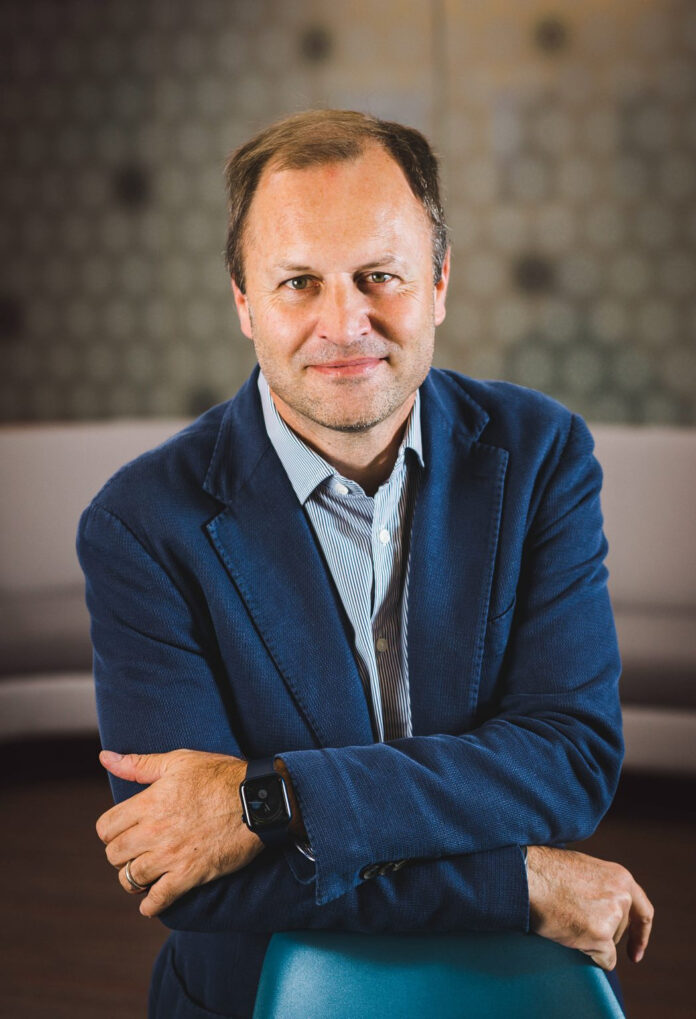SOUTH SAN FRANCISCO, Calif.– Opna Bio announced that it has dosed the first patient with OPN-6602, a potent and selective EP300/CBP bromodomain inhibitor, in a Phase 1 clinical study in multiple myeloma. The trial is expected to enroll up to 130 total patients with relapsed or refractory multiple myeloma at sites in the U.S. Multiple myeloma is a type of blood cancer derived from malignant plasma cells in the bone marrow. There are approximately 180,000 people worldwide who are diagnosed with multiple myeloma and 117,000 deaths attributable to the disease annually.
 The first patient was dosed at The START Center for Cancer Research in Grand Rapids, Michigan, with Dr. Andrew Sochacki, principal investigator, leading the study team. “OPN-6602 represents an exciting and novel therapeutic target that will provide a much-needed option for our relapsed and refractory myeloma patient population,” stated Dr. Sochacki. “The innovative approach of this therapy has the potential to significantly improve outcomes for patients who have exhausted other treatment options. This collaboration with Opna underscores our commitment to advancing cutting-edge research and delivering new, effective therapies to patients who need them the most.”
The first patient was dosed at The START Center for Cancer Research in Grand Rapids, Michigan, with Dr. Andrew Sochacki, principal investigator, leading the study team. “OPN-6602 represents an exciting and novel therapeutic target that will provide a much-needed option for our relapsed and refractory myeloma patient population,” stated Dr. Sochacki. “The innovative approach of this therapy has the potential to significantly improve outcomes for patients who have exhausted other treatment options. This collaboration with Opna underscores our commitment to advancing cutting-edge research and delivering new, effective therapies to patients who need them the most.”
OPN-6602 is an oral, small molecule inhibitor of the E1A binding protein (EP300) and CREB-binding protein (CBP). Through EP300/CBP inhibition, OPN-6602 down regulates expression of IRF4 and MYC, two transcription factors that drive growth of multiple myeloma cells. Preclinical data presented at the American Association of Cancer Research (AACR) 2024 Annual Meeting showed that OPN-6602 significantly reduced tumor growth as a single agent (71% tumor growth inhibition) in the OPM-2 human multiple myeloma cell xenograft model as well as increased anti-tumor activity (>100% tumor growth inhibition) in combination studies.
“We are pleased to initiate clinical testing of OPN-6602, which has shown potent anti-tumor activity in multiple myeloma models as well as other cancers,” said Reinaldo Diaz, MBA, chief executive officer.
The objectives of the open-label study are to assess safety, tolerability, pharmacokinetics and preliminary anti-tumor activity of OPN-6602 as monotherapy and in combination with dexamethasone in patients with relapsed or refractory multiple myeloma. The company expects to enroll up to 90 patients in the dose-escalation cohort, with an additional 40 patients in the dose-expansion cohort. The completion date is expected in the second half of 2026.
Additionally, Opna announced the appointments of Axel Bolte, MBA, MSc, to board director and Stephanie Oestreich, PhD, MPA, to board observer, following the Myeloma Investment Fund’s recent investment in Opna. The Myeloma Investment Fund is the philanthropic investment fund of the Multiple Myeloma Research Foundation.
Mr. Bolte most recently served as founder, president and CEO of Inozyme Pharma (INZY), a rare disease company where he continues as director and advisor. He also served as a board director of IVERIC Bio (ISEE) until its sale to Astellas. Mr. Bolte is managing partner for Healthcare Advisors GmbH and was previously venture partner and investment advisor for HBM Partners AG, while serving on multiple boards of private and public companies.
Dr. Oestreich, the managing director of the Myeloma Investment Fund, brings decades of experience, previously serving as chief business officer at Galecto, vice president at Mnemo Therapeutics, as well as venture partner at RA Capital. She was also executive vice president at Evotec where she built its North American investment arm and started an incubator with Samsara BioCapital, as well as worked in business development and commercial functions at Roche and Novartis.
”We welcome Axel Bolte and Dr. Stephanie Oestreich to our board, both of whom bring valuable hands-on experience in industry operations, disease areas, financing and business development,” said Diaz.



